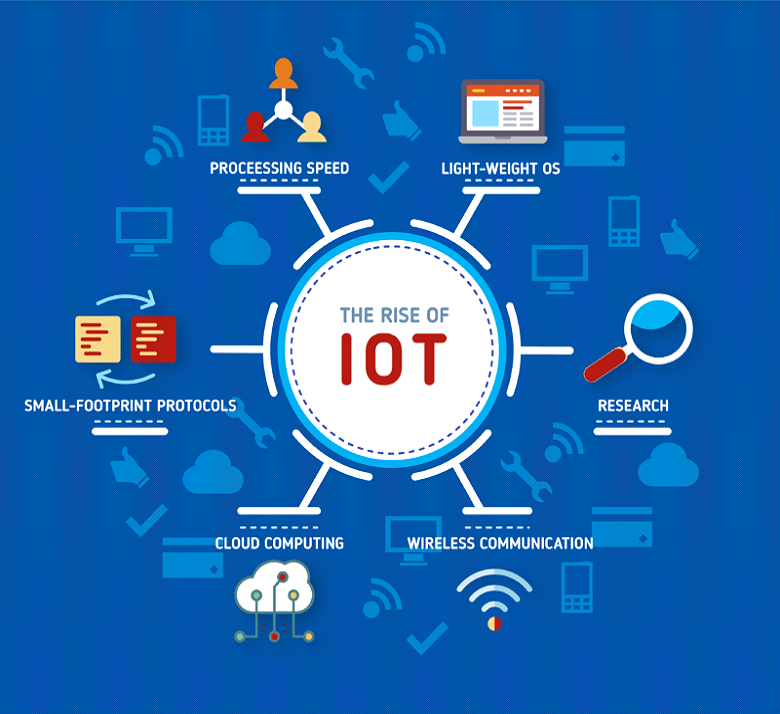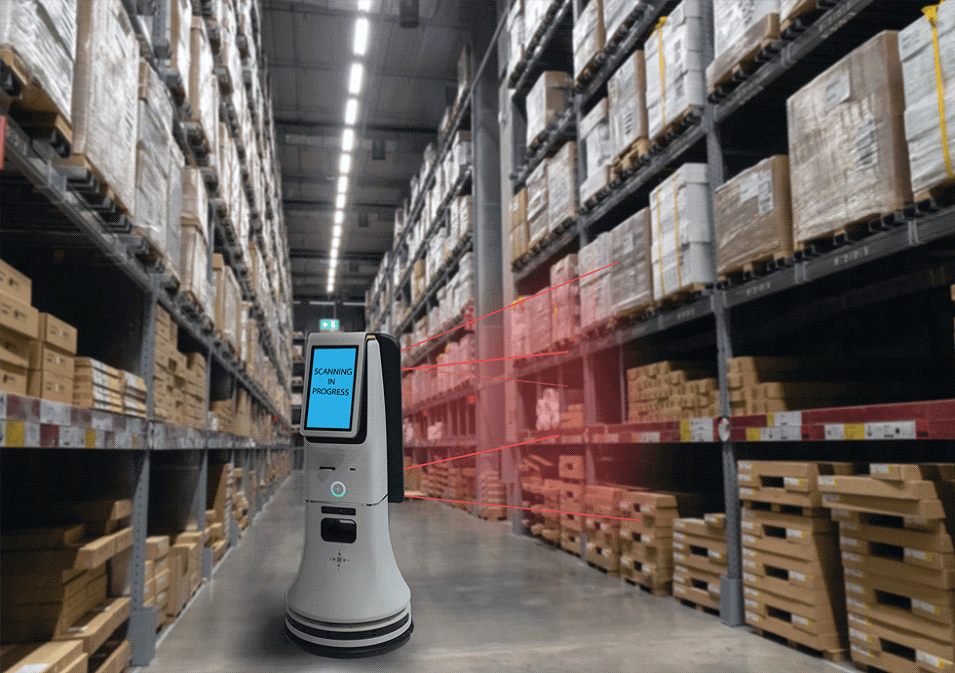Smart Logistics support seamless supply chain processes to meet business needs. Every touch point is important in customer interaction, from how quickly customers receive their goods to satisfying customer satisfaction. Smart logistics can be used by companies to deliver products more quickly and efficiently. It will give them a competitive advantage over competitors. The logistics service sector is experiencing substantial growth and many companies are seeking to subcontract their logistics because there is less expertise in these areas. E-commerce is unstoppable, which requires faster delivery and efficient inventory management. Logistics Service Providers can benefit from a new generation of smart technology. This article discusses some smart technologies that will benefit most organizations for logistics service providers.
Table of Contents
Internet of Things (IoT) Technology
The IoT is a physical device that connects to the internet to share and collect data over a wireless network without human intervention. The availability of wireless networks and small computer chips make it possible for thousands of products to stay connected. IoT devices will be able to detect and monitor their environment and report their status. A new system, IoT assistant, gives logisticians a real-time visibility into the movement of goods and the status of shipment. This system enables a company to increase efficiency, reduce their cost and even reduce the need for manpower. Cybercriminals can always find their way through one of the security vulnerabilities that are found in IoT systems. Many IoT devices have default passwords left unchanged, it has become a good ‘target’ for cybercriminals to aim for. Cybersecurity is a concern when implementing IoT in logistics. In order to minimize risks, the company can set a schedule for regularly changing the passwords of IoT devices to prevent cyber-attacks.

Blockchain Technology
In today’s global supply chain network, freight brokers play a pivotal role because they help complete cargo transactions from shipper to carrier and charge additional premiums. This has led to a substantial increase in the cost of logistics service providers. As complexity increases, profit margins are further reduced, which makes solving this problem even more challenging. The blockchain technology can prove to be a game-changer in this regard. One of the best ways to reduce overhead is to use blockchain-based smart contacts. These contracts will help reduce the number of intermediaries to a large extent. On the other hand, using blockchain for inventory management can eliminate potential data errors and delivery delays. The companies allow track each shipment, estimate the delivery time of different routes, and calculate delivery costs more accurately. By improving the inventory management, this means the company is reducing their costs and increasing the profits.

Artificial Intelligence for Warehouse Automation
Many logistics service providers need fast and advanced logistics solutions, which is why they invest resources in artificial intelligence technology and robotics. Artificial intelligence is changing warehousing processes, such as collecting and analysing information and inventory processes. In terms of warehousing, artificial intelligence is used to forecast demand and modify orders. Companies can adjust the order based on these forecasts and deliver the goods in demand to the local warehouse as needed.
When a company predicts the demand for certain products in advance and plans the logistics in advance, it can improve service, reduce transportation costs and save a lot of money. The combination of Artificial Intelligence and robotic process automation (RPA) enable employees to improve performance by increasing productivity and accuracy. For example, some repetitive tasks related to data can be automated with the help of AI. In this way, back-office automation can help companies with supply chains save time and money. Using this technology, the company can replace certain categories of employees, such as accountants and human resources experts. Therefore, the probability of human error will be lower.

Automatic Guided Vehicles (AGVs)
The AGV is a material handling system or loader that can travel autonomously in warehouses, distribution centers, or manufacturing facilities without an onboard operator or driver. Automated Guided Vehicle systems are used for tasks typically handled by forklifts, conveyor belt systems, or manual carts, moving large amounts of material in a repetitive manner. For example, AGV can transport raw materials from the receiving place to the warehouse, or directly to the production line.
AGV delivers the required raw materials consistently and reliably without manual intervention, ensuring that the production line always has the required materials without interruption. The use of robotics and automation can ease the labor-intensive global logistics industry. For example, companies that utilize smart logistics may consider improving employee skills and allowing employees to assume more important roles in order to optimize the customer experience as the entire enterprise is digitized and automated.
The full content is only visible to SIPMM members
Already a member? Please Login to continue reading.
References
Aidilhaswin Hassan, DLSM. (2021). “Smart Technologies for Efficient Warehousing”. Retrieved from SIPMM: https://publication.sipmm.edu.sg/smart-technologies-efficient-warehousing/, accessed 12/06/2021.
Bryan Quek Guan Kia, DLSM. (2021). “Key Technology Systems to Implement Integrated Logistics”. Retrieved form SIPMM: https://publication.sipmm.edu.sg/key-technology-systems-implement-integrated-logistics/, accessed 12/06/2021.
Karl Lee Ecijan, ADLSM. (2019). “Robotic Process Automation (RPA) for Digital Warehousing”. Retrieved from SIPMM: https://publication.sipmm.edu.sg/robotic-process-automation-rpa-digital-warehousing/, accessed 12/06/2021.
Maciej Kranz. (2018). “The Internet of Things Transforms Logistics”. Retrieved from https://www.sdcexec.com/software-technology/article/21001674/the-internet-of-things-transforms-logistics, assessed 13/06/2021.
Marie Ann E.Dionaldo, DLSM. (2020). “Automation Technologies for Logistics Service Providers”. Retrieved from SIPMM: https://publication.sipmm.edu.sg/automation-technologies-logistics-service-providers/ ,accessed 12/06/2021.
Sam Daley. (2019). “Companies Using Blockchain’s Logistics Capabilities to Excel”. Retrieved from https://builtin.com/blockchain/blockchain-supply-chain-logistics-uses, accessed 20/06/2021.

